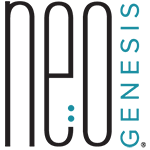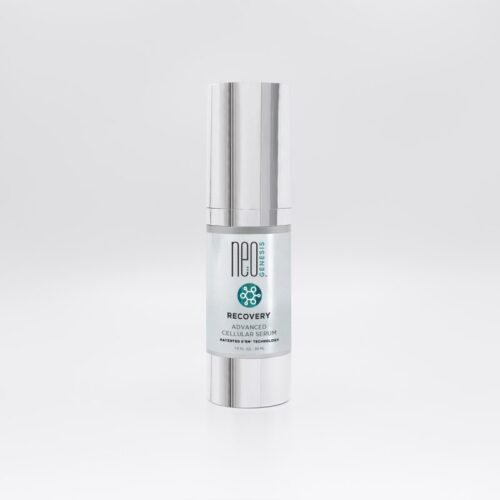Dermatitis
NeoGenesis offers soothing solutions to bring relief from the discomfort of dermatitis and eczema. Our medical grade skin care products contain patented S²RM® molecules that naturally infuse nutrient-rich molecules to the skin. By providing the best climate for calming and hydrating the skin, areas of irritation are reduced, allowing symptoms like itch, redness and irritation to subside.
BENEFITS
- Soothes and calms the inflamed area
- Reduces redness
- Breaks the itch-scratch cycle
- Relieves irritation
- Smoothes skin texture
- Promotes healthy skin
RECOMMENDED PRODUCTS
Cleansers, Makeup Remover, Shop All
Rated 5.00 out of 5$50.50 Select options This product has multiple variants. The options may be chosen on the product page
- Rated 5.00 out of 5$3.50 – $62.50 Select options This product has multiple variants. The options may be chosen on the product page
Acne, Aging Skin, Oncology Friendly, Recovery, Serums, Shop All
Rated 4.96 out of 5$62.00 – $395.00 Select options This product has multiple variants. The options may be chosen on the product page
Aging Skin, Barrier Cream, Barrier Renewal Cream, Moisturizers, Oncology Friendly, Shop All
Rated 5.00 out of 5$10.00 – $187.00 Select options This product has multiple variants. The options may be chosen on the product page
Intensive Moisturizer, Moisturizers, Oncology Friendly, Shop All
Rated 5.00 out of 5$10.00 – $187.00 Select options This product has multiple variants. The options may be chosen on the product page
Home Care Protocol
MORNING
STEP 1: Spritz MB-1 across the skin and to a cotton round to refresh and lightly hydrate the skin.
STEP 2: Apply Recovery.
STEP 3: Apply Barrier Renewal Cream.
STEP 4: Apply a mineral sunscreen with a SPF of 30 or higher and be sure to reapply every two hours when outdoors or mid-day when indoors to protect your skin from UV rays.
STEP 5: Finish by shaking MB-1 vigorously and spritzing across the skin to provide healthy bacteria to combat dysbiosis on your skin’s surface.
EVENING
STEP 1 (optional): Remove any eye and lip makeup with Erase the Day on a cotton round. This product is safe for eyelid dermatitis.
STEP 2: Use 1-2 pumps of Cleanser (twice if removing makeup).
STEP 3: Apply 1 pump of Recovery.
STEP 4: Apply Barrier Renewal Cream if your skin is more red or Intensive Moisturizer if your skin is more dry.
STEP 5: Finish by shaking MB-1 vigorously and spritzing across the skin to provide healthy bacteria to combat dysbiosis on your skin’s surface.
Featured Videos
FAQs
What is dermatitis, and how is it different from eczema?
Dermatitis is a general term that means inflammation of the skin. It describes a range of skin conditions that cause symptoms like redness, swelling, itching, and irritation.
Eczema, on the other hand, is a type of dermatitis—specifically, it usually refers to atopic dermatitis, which is a chronic, inflammatory skin condition often linked to allergies, asthma, or hay fever. In short, all eczema is dermatitis, but not all dermatitis is eczema.
What’s the difference between atopic, contact, seborrheic, and perioral dermatitis?
Dermatitis is an umbrella term for skin inflammation, and it comes in different forms. Atopic dermatitis (eczema) is chronic and often linked to allergies and genetics. Contact dermatitis is triggered by direct exposure to an irritant or allergen, while seborrheic dermatitis affects oily areas of the skin and scalp, often linked to yeast overgrowth. Perioral dermatitis typically appears around the mouth and is often caused by topical steroids or irritating skincare products.
Can skincare products cause or worsen dermatitis?
Yes — skincare products can definitely cause or worsen dermatitis, especially if they contain irritating ingredients like fragrance, alcohol, essential oils, or strong actives like retinol and vitamin C. Some people also develop allergic reactions to preservatives or botanical extracts, leading to redness, itching, or flare-ups. Overuse of products, especially harsh or layered routines, can weaken the skin barrier and make dermatitis worse. For sensitive or dermatitis-prone skin, a minimal, barrier-supportive routine is key.
How do I improve my skin barrier if it’s damaged?
Strengthening your skin barrier is easy with NeoGenesis products. First, choose a gentle cleanser that won’t strip your skin’s natural oils, like the NeoGenesis Cleanser in the evenings only for a few weeks to one month before resuming your morning cleansing routine. You can use the NeoGenesis MB-1 to refresh your skin using a cotton round for this temporary period. Second, apply NeoGenesis Recovery to help calm redness and deliver the nutrients that your skin needs to be strong and healthy. Third, apply the NeoGenesis Barrier Renewal Cream as it contains the three essential lipid types to support skin barrier function. Last, apply NeoGenesis MB-1 as it contains three live bacteria to strengthen your microbiome and promote healthy skin.
Can dermatitis affect sleep or quality of life?
Yes — dermatitis can significantly affect both sleep and quality of life. The constant itching, burning, and discomfort—especially at night—can disrupt sleep and lead to fatigue, mood changes, and difficulty concentrating during the day. Keep a bottle of MB-1 by your bed so that you can relieve itch throughout the night. Beyond the physical symptoms, visible skin inflammation can impact confidence, social interactions, and emotional well-being, sometimes leading to anxiety or self-consciousness. Managing dermatitis holistically—addressing both skin health and emotional support—is essential for improving overall quality of life.
Is it normal to feel self-conscious or anxious about my skin?
Yes, it’s completely normal to feel self-conscious or anxious about your skin, especially if you’re dealing with visible conditions like dermatitis, acne, or eczema. Our skin is a big part of how we present ourselves to the world, and when it’s inflamed or affected by a skin condition, it can lead to feelings of frustration, embarrassment, or a lack of confidence. It’s important to remember that you’re not alone, and these feelings are valid. Many people with skin conditions experience similar emotions, and it’s okay to seek support, whether from a therapist, skin professional, or community of people going through the same thing. Healing isn’t just physical—it’s emotional too.









